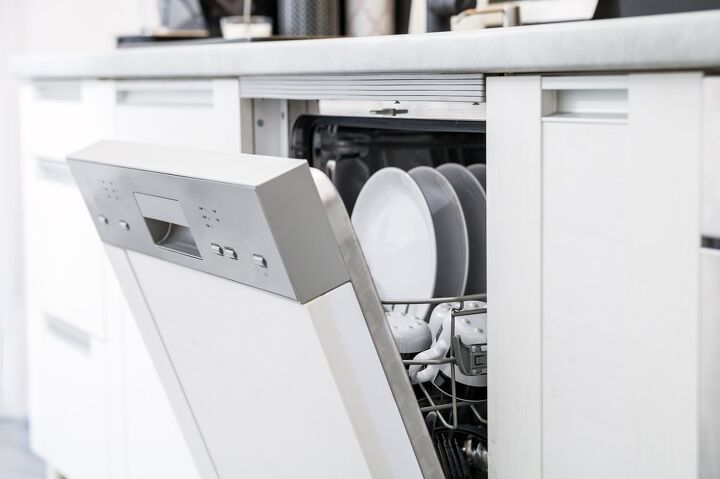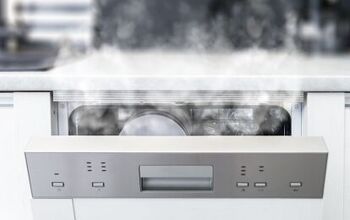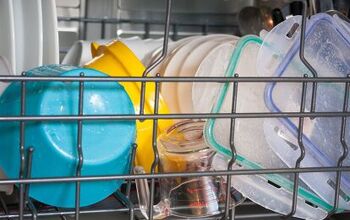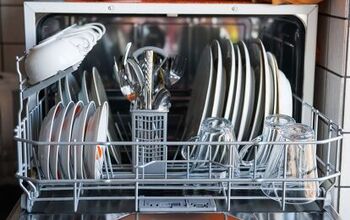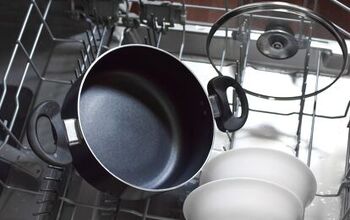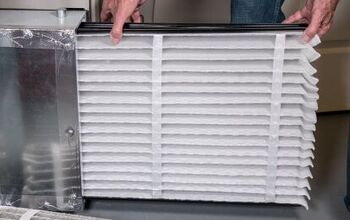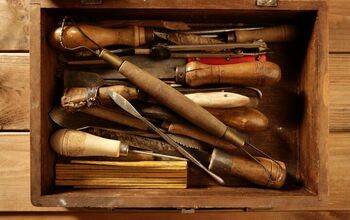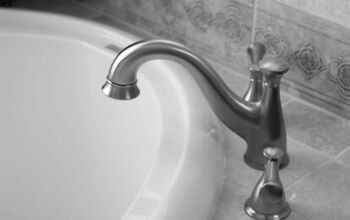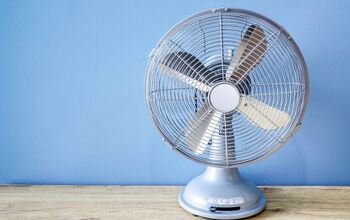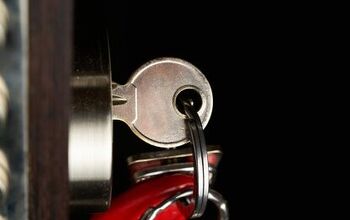Can You Run A Dishwasher Without Hot Water? (Find Out Now!)

Did you know that there is an old recipe that teaches you how to cook fish in a dishwasher? It’s true. The hot water that we feel from dishwashers seems to be part of the whole experience. You get hot water, it helps make your dishes spotless. Bada bing, bada boom. But, what happens if your hot water isn’t turned on? Can you still run your dishwasher?
It is absolutely possible to run a dishwasher without hot water. Many, if not most, dishwashers have a built-in heating mechanism that can help act as a water heater while your dishes get washed. Even if yours doesn’t have built-in heat, you shouldn’t worry. Cold water won’t harm your dishes.
Your dishwasher is a true wonder-worker in the kitchen, but it still has its limits. Let’s discuss what you need to know before you switch it on.
Do You Need Appliance Installation or Replacement?
Get free, zero-commitment quotes from pro contractors near you.

Does A Dishwasher Need Hot Water To Work?
Let’s start with the bare basics. Having your hot water turned on is not necessary to make your dishwasher run. Even if your dishwasher does not have a built-in heating element, there is a good chance that you won’t have anything to worry about. The only thing dishwashers really need to work is access to cold water and electricity.
Do Dishwashers Directly Require Hot Water Input?
This all depends on the make and model of your dishwasher. Many modern ones will want to have hot water directly dispensed into them, since it can cost more energy to heat up the water inside. However, you can still find plenty of dishwashers on the market that have their own heating elements.
Does A Dishwasher Use Lots Of Hot Water?
Yes and no. A typical dishwasher cycle will take between six to eight gallons of water. Water-efficient waters may take as little as four. That, in and of itself, is not a lot of water. However, that doesn’t mean it’s cheap. The price of heating up the water can be pretty high.
How Hot Is The Water In A Dishwasher?
If you’ve ever had the steam from a dishwasher hit your face, you already know how hot it can get. Water in dishwashers is expected to be between 130 to 160 degrees Fahrenheit.
What Happens If You Use Cold Water With Your Dishwasher?
Let’s divvy this part up into both good news and bad news. It’s good to get a full scope of what you are going to be dealing with.
The Good News
Here’s the good news that you are going to like hearing: dishes and cookware deemed dishwasher-safe can withstand anything a dishwasher does. Hot water is generally going to be harsher on your cookware than cold water is. This means that you don’t need to worry about cracked plates and melted spatulas.
If we’re going to be honest, this is often a good way to give older dishwasher-safe items a wash. Sometimes, as cookware ages, it won’t be able to handle heat as well as it once did. So, in this case, it could actually be beneficial.
The Bad News
Using cold water is not the best thing in the world for your dishwasher, but thankfully, it’s not because it damages the machinery. Rather, it can eat up energy during the dishwasher’s heating process—especially if the water being used is below 120 degrees Fahrenheit. Of course, if your dishwasher doesn’t have a built-in heat ring, this is not an issue.
The bigger issue, across the board, will be the results you get from your dishwashing session. The lower the water temperature is, the worse the results can be. Your dishes will still be clean-ish, but they may still have spots and scraps on them. Thankfully, there’s a quick way to handle this.
How To Get Good Results With A Dishwasher That Has No Hot Water
If you want to wash your dishes with cold water, you absolutely can. It’s important to temper your expectations with results. A dishwasher alone may not be able to scrub off the dirty food from your plates if no hot water is involved. You will need to get some elbow grease involved.
To get good results, you only need to give your dishes a brief cleaning prior to sticking them in the wash. Soaking them in soapy water and scraping trouble foods off of them can help. However, the general consensus is that your dishwasher will usually act more like the rinse cycle rather than the full works.
Do You Need Appliance Installation or Replacement?
Get free, zero-commitment quotes from pro contractors near you.

Related Questions
Can you run a dishwasher without a working water heater?
If your boiler or water heater just went kaput, you may still be able to run your dishwasher without a care in the world. Your dishwasher will probably have an internal heating element that will bring water to a piping hot temperature.The bigger issue occurs if your boiler or heater is the only conduit for water in your home to pass through. If no water is available, you cannot run your dishwasher.
Why is my dishwasher only using cold water?
Assuming that your water heater and boiler are in perfectly fine shape, there is only one common reason why this would happen. A dishwasher that only runs on cold is usually the fault of a broken thermostat. When this occurs, your thermostat is signaling that the water is already hot and therefore wouldn’t need heating.Replacing a dishwasher thermostat will usually fix this. However, there may be very rare circumstances where it also could be a circuit board issue or a worn-out heating element. If this is the case, you may need professional repairs.
Does hot water clean better than cold?
This is actually an old wive’s tale. Studies show that there is little difference in food-borne bacteria rates when dishes are washed in temperatures higher than 100 degrees Fahrenheit. So, if you want to, you can use warm (but not hot) water. Cold water is still not advisable, though, since it may not fully clean your plates and may also be unable to kill certain pathogens.
Related Guide

Ossiana Tepfenhart is an expert writer, focusing on interior design and general home tips. Writing is her life, and it's what she does best. Her interests include art and real estate investments.
More by Ossiana Tepfenhart



